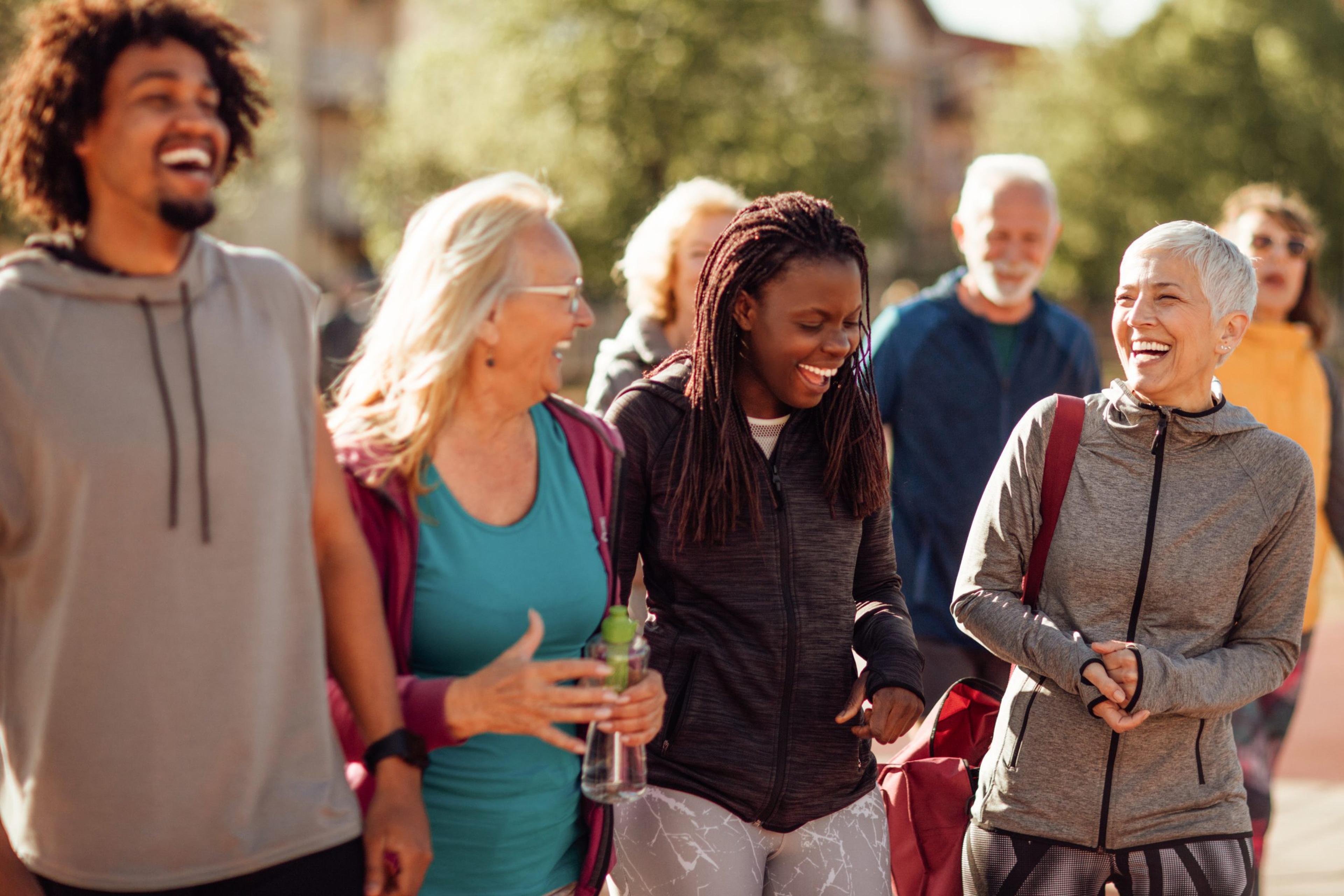Six Ways to Improve Social Wellness

Dr. Kristyn Gregory
| 4 min read

Not everyone considers a healthy social life to be a determinant of overall well-being, but it’s an important component. Social wellness involves making meaningful connections and building authentic relationships with a wide range of people. Even those with introvert personalities should try leaving their comfort zones to explore better social health and personal connections.
These six areas of social wellness can unlock a better, more well-rounded health profile:
1. Make connections
Research suggests strong social ties are linked to a longer life, whereas loneliness and social isolation are linked to poorer health, depression and increased risk of early death, according to the National Institutes of Health. Here are a handful of ways to get involved with others:
- Help with gardening at a community garden or park
- Join an in-person or virtual social group that connects based on a favorite hobby
- Learn something new by taking a cooking, yoga, writing, art or music class
- Travel more often to meet new people
- Volunteer at a school, library, animal shelter or place of worship
2. Build healthy relationships
Building and maintaining healthy relationships with others can take effort, whether it’s at home, work or school. Ensure relationships remain mutually beneficial by trying the following:
- Ask others what they need
- Avoid being overly critical
- Communicate expectations
- Compromise more
- Disagree respectfully
- Periodically check in on those who may be facing challenges
- Set and hold boundaries
- Share feelings honestly
3. Make physical activity social
Physical activity is a natural bonding mechanism. Whether it’s with people they know or people they don’t know, individuals can find significant benefits by incorporating physical movement into a social situation. Consider these fun activities:
- Start a walking or bicycling group with family, friends, neighbors or coworkers
- Participate in local planning efforts to develop walking paths, sidewalks and bike paths
- Join a low- or no-cost office sports team – like softball or kickball
- Visit local community recreation centers to find free and low-cost group activities, teams and events
- Enroll children in community sports teams or lessons
4. Take care of oneself while caring for others
Most people will naturally become a caregiver, either for a parent, relative or significant other. While this role is a great service, caregivers often run the risk of putting their own needs last. Those who already find themselves in that role should prioritize self-care by:
- Getting organized through to-do lists and a daily routine
- Taking short breaks each day
- Prioritizing hobbies and interests when possible
- Joining a caregiver’s support group, either online or in one’s community
- Eating a healthy, balanced diet and exercising regularly
5. Shape family health habits
Children tend to mirror the behavior of their parents, both intently and subconsciously. When parents and guardians develop healthy eating and exercise habits, kids can learn to do the same. With that in mind, try implementing these habits:
- Eat healthy family meals together without the distractions of smart phones or the TV
- Encourage healthy movement by ensuring children have toys that enable active play, like bicycles, scooters, basketballs and other sport equipment
- Limit screen time
- Go on walks or bike rides together
- Make healthy choices easy by keeping nutritious snack foods where they are easy to see and choose
6. Meaningfully bond with children
Children with strong connections to their caregivers are better equipped to cope with life’s challenges. The more sensitive, responsive, consistent and available a parent and caregiver is to their child, the healthier the relationship becomes. Here are some tips to build strong emotional relationships between parents and children:
- Offer praise when kids show good behavior
- Set clear boundaries and expectations with children
- Use kind words, tones and gestures when making requests or giving instructions
- Brainstorm solutions to school problems together and be available for advice and support
- Ask children about their feelings: including their worries, concerns, goals or ideas
- Give children meaningful jobs at home and positive recognition when they complete them
Ways to seek help with social anxiety
Not everyone is naturally outgoing, so achieving social wellness can be harder for some than others. Some individuals may experience signs and symptoms of social anxiety disorder, which can include:
- Avoiding places where there are other people
- Experiencing rigid body posture or speaking with an overly soft voice
- Feeling self-conscious or fearing that people will judge them negatively
- Struggling to make eye contact and be around people or talk to people in social situations, even when it’s desired
If needed, there are support options available to those who may have social anxiety disorder. Talk with a health care provider to discuss options like public support groups, psychotherapy, medication or assistance from behavioral health treatment services.
Kristyn Gregory, D.O., is a medical director of behavioral health at Blue Cross Blue Shield of Michigan. For more healthy lifestyle ideas, visit AHealthierMichigan.org.
Related:
Photo credit: Getty Images





